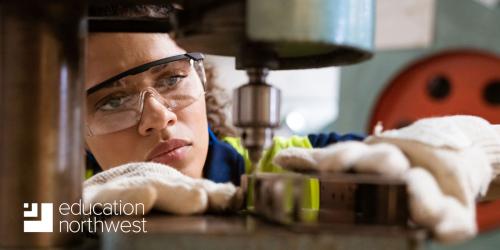Apprenticeships pave the way to high-demand, well-paying careers. Understanding the landscape can help us expand access to apprenticeship opportunities.
With the right data, states and regional agencies can better align career prep programs to labor market needs—benefitting workers, employers, and entire communities.
Federal performance indicators for career and technical education programs can support continuous improvement. But to expand access and participation, educators should look to other data points.
CTE and accelerated learning courses are associated with positive outcomes for students, including high school graduation, college enrollment, and college persistence.
Accountability indicators contained within the federal Strengthening Career and Technical Education for the 21st Century Act have a profound effect on career and technical education (CTE).
An expert shares how program-level CTE staff can use data they already collect to make programs more equitable and accessible.
After-school employment has great potential to reinforce and expand on classroom learning—if students, educators, and employers collaborate.
Approaches to career guidance have swung from focused study to broad experience and back again. So what’s the best way for students to find the work they really want to do?
Working with academic courses, career and technical education gives students the real-world skills they need to excel in a wide range of industries.
The U.S. educational system is now experiencing a test run for the future. COVID-19 has demonstrated that despite the widespread use of online learning in many educational settings, we are still woefully unprepared to meet the needs of all students in such an environment.
Education Northwest researchers recently completed a REL Northwest study that provides a landscape scan of secondary CTE programming in Oregon.
Reauthorization of federal CTE legislation offers states an opportunity to rethink their CTE performance indicators. Steve Klein provides a set of principles to help guide states' work.
States are developing comprehensive educational data systems that contain a wealth of student data spanning the pre-K, K-12, and postsecondary education systems.
When it comes to CTE, what teaching models make a difference? Our bloggers make a case for combining project-based and blended learning models into a powerful CTE teaching approach.
Our librarians recently compiled this list of the latest studies and resources that states, districts and schools can draw from to create and improve CTE programs.















